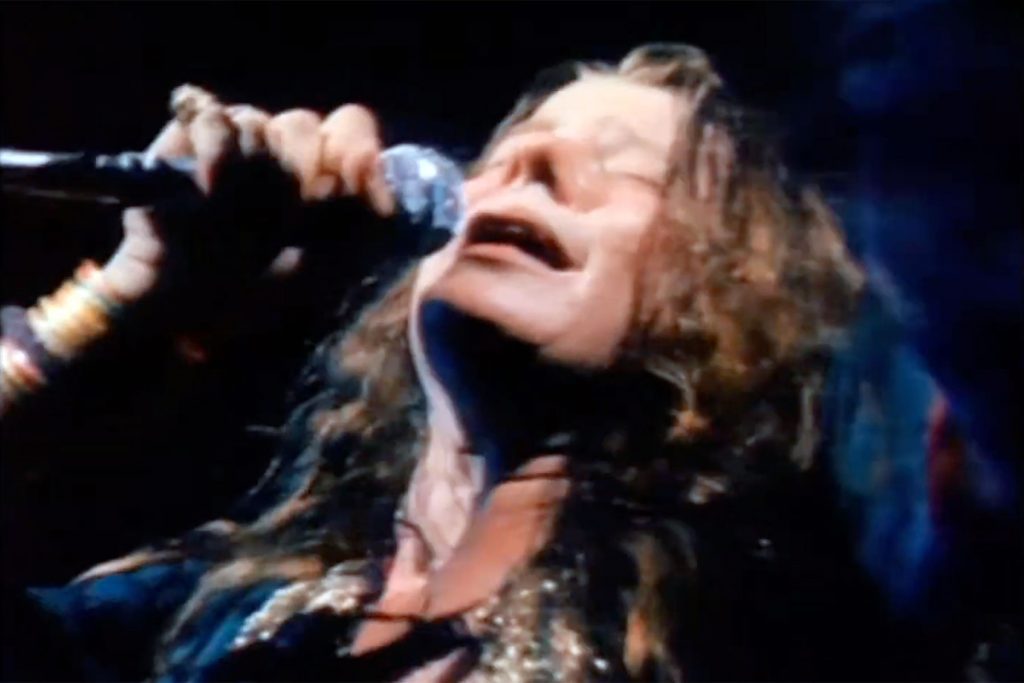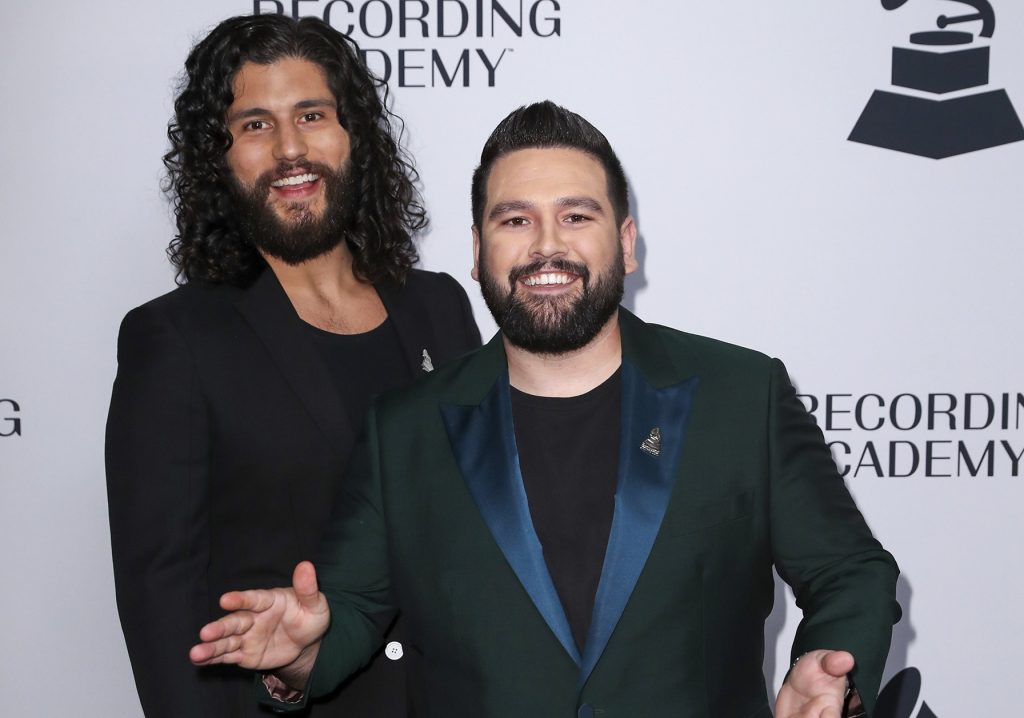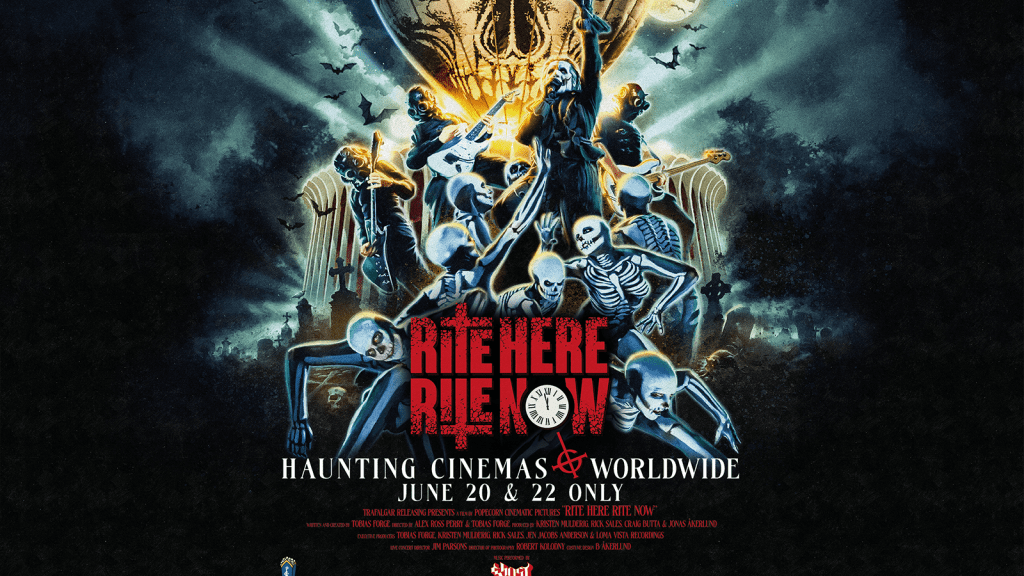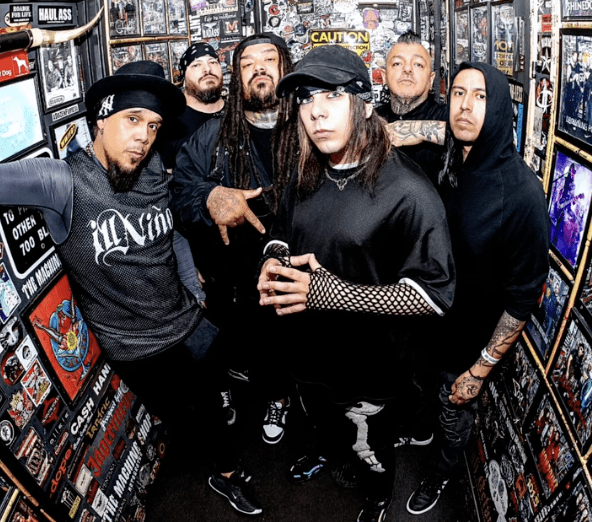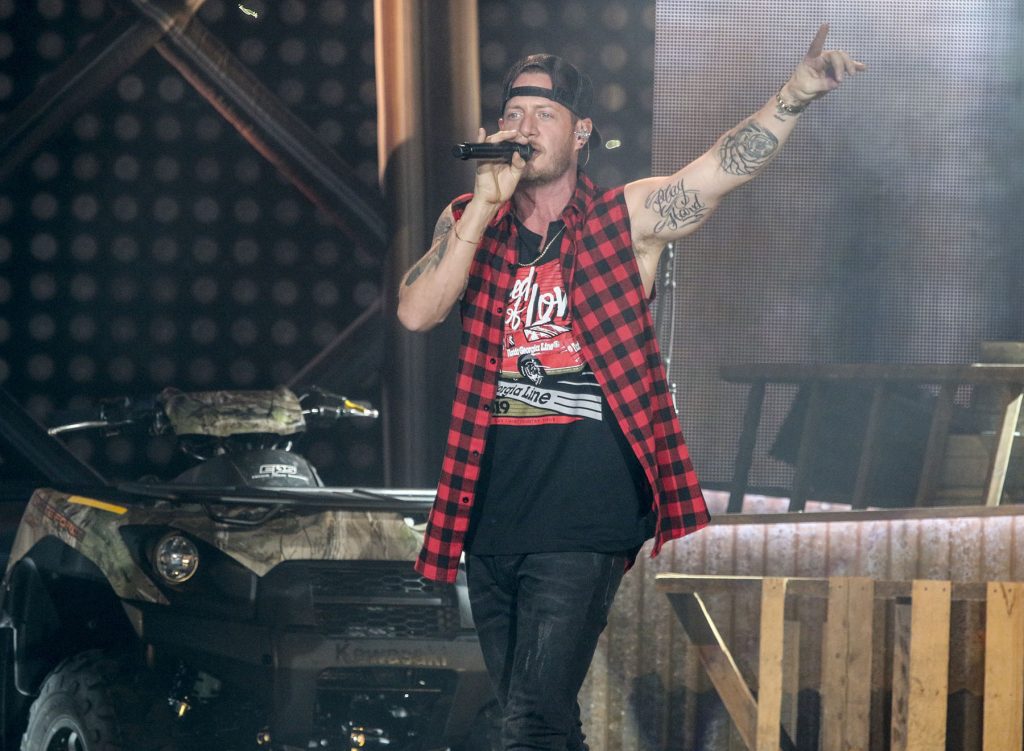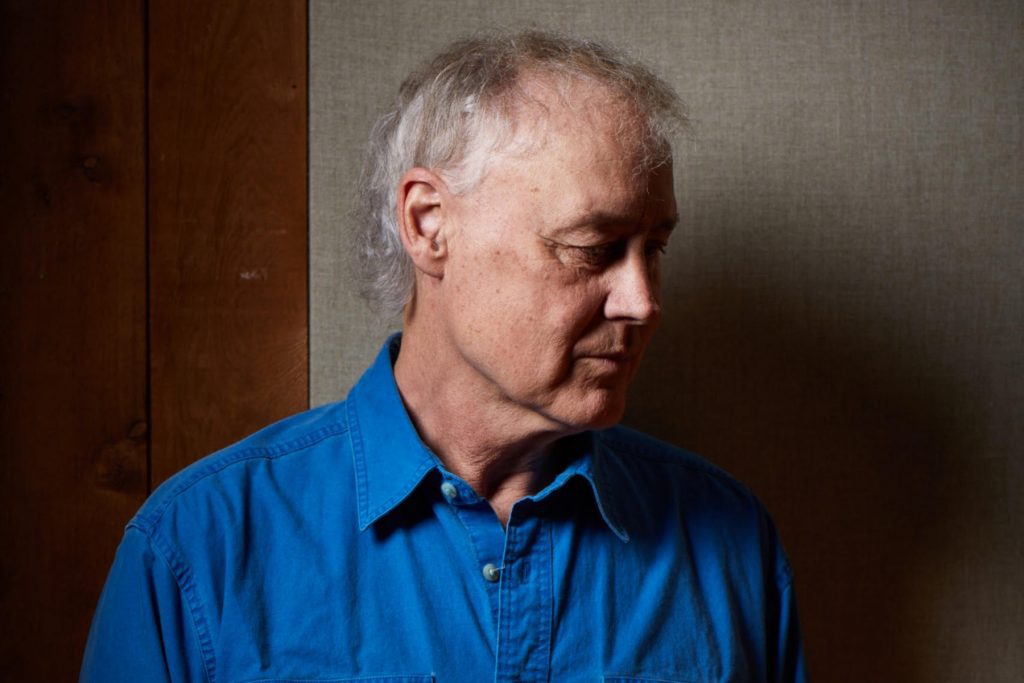
Bruce Hornsby on the Hip-Hop Afterlife of ‘The Way It Is’ and His Posthumous Leon Russell Duet
“What’s the name of that fantastic Netflix series about hip-hop?” Bruce Hornsby asks. “You’re going to have to make a plea for my inclusion!”
Hornsby is joking, of course, but this summer has brought another reminder of the keyboardist-singer’s unexpected impact on the genre. Nearly 35 years ago, Hornsby had an out-of-the-box hit with “The Way It Is,” which combined an elegantly hooky piano with lyrics confronting racism (“They passed a law in ’64/To give those who ain’t got a little more/But it only goes so far/Because the law don’t change another’s mind”). Since then, “The Way It Is” has been sampled or re-recorded in nearly 20 hip-hop tracks by 2Pac, Snoop Dogg, Mase and, this year, Polo G (“Wishing for a Hero”). Not quite the “Funky Drummer” of piano, but close.
The situation is the latest oddball turn in a career full of them. With “The Way It Is,” Hornsby seemed set for a career as a meditative singer-songwriter; his collaborations with Don Henley (“The End of the Innocence”) and Bonnie Raitt (“I Can’t Make You Love Me”) bolstered his adult-pop cred. Instead, he has followed his own unpredictable muse for three decades. He briefly joined the Grateful Dead, worked with jazz players like Branford Marsalis and Pat Metheny, ventured into electronica, and wrote music for assorted Spike Lee projects.
Hornsby’s most recent artistic adventure began with last year’s Absolute Zero, which recruited everyone from Bon Iver’s Justin Vernon to jazz drummer Jack DeJohnette for a collection that frolicked in jazz, classical, and avant-pop. His next album, Non-Secure Connection, out August 14, picks up where that last one left off, with what he calls “dissonant chromatic language” and cameos by Vernon, guitarist Vernon Reid, and the Shins’ James Mercer.
The lyrics are equally ambitious. “The great Nina Simone said, ‘It’s an artist’s duty to reflect the times in which we live,’” he says. “I agree with that.” Non-Secure Connection tackles subject matter like drones, hackers, and civil rights. “Shit’s Crazy Out Here” is, he says, about the “Darwinian, dystopian world of summer AAUU basketball.” (“First time I’ve ever had a cuss word in the title — really pushing the envelope for old grandpa here,” he chuckles.)
Since he’s been holed up at home in Virginia, Hornsby has already written another album, including several songs inspired by the coronavirus. In a few weeks, he’s planning to fly to L.A. to work on them with producers Blake Mills and Tony Berg. “I’m sort of bound and determined to do it,” he says, half-jokingly. “So if you never hear from me again, you’ll know what happened. I fucked up. I was not patient and I paid the price.” Before he leaves, he talks with RS about his own, very particular career path.
“The Way It Is” is back on the airwaves this summer. What do think of Polo G’s usage in “Wishing for a Hero”?
I love it. They reached out to my management in the early part of the year and said, “This young rapper wants to fly to Virginia and ask your permission to do this.” And I said, “Well, send me the song.” I heard it and thought it was great. I love the gospel choir at the end. It’s very soulful work: “They killed Martin for dreamin’ and now I can’t sleep.” That’s very moving. So I got back to Polo G and said, “Look, save your money. I love it. Permission granted.”
I’ve never counted it, but I read that my song has now been recorded 17 times by hip-hop artists. There are some great notable ones. E-40 did a great version. Mase. Snoop Dogg. Obviously, the iconic one is Tupac’s “Changes,” which at least in my book has endured as one of the archetypal protest songs regarding race in America. And my song obviously was on the same subject matter.
Do you have to sign off on each of these usages?
You would think I’d know this unequivocally. This is kind of a guess, but I think once you’ve recorded and released the song, anyone can do whatever they can. They can perform their version of it or take a sample or whatever. In the Tupac case, about a year after his assassination, I got in the mail a cassette from the Shakur Foundation with a note saying, “We’ve found this in Tupac’s voluminous posthumous archives and this is going to be the single from his greatest-hits package. And we just wanted you to know about this because we want to negotiate the publishing splits with you.” That’s how it generally works.
Have you ever said no to any of them?
If I really hated it, I could be really persistent about asking for 100 percent of everything. And that might give them pause. They could say, “Well, OK, forget it. We better record a different song.” But I’ve never said no. I’ve really pretty much liked most of them. Some of the dance and the EDM versions are a little suspect for me, but I generally go, “OK, what the hell — it’s out there in the zeitgeist.”
Have you ever had a chance to ask someone in hip-hop why they like that piano part so much?
I haven’t. You’d think that, with all of my work with Spike Lee through the years, I’d have run into someone from that world who would be able to give me some clear answer about why. What’s so attractive about this? I’d like to know, but I don’t have any idea.
Do you have any theories yourself?
Well, the song’s about racism, so that may draw someone to it on a subject-matter level. The other possible way in is its very simple drum-machine feel. It doesn’t have that big, punchy sound of a Dr. Dre record or all the great-sounding hip-hop records, but it has a feel that lends itself to that music.
It’s the song for which I’m known. But as a songwriter, I think I’ve got 10 to 15 songs that are far deeper and far greater. The first song I wrote with Robert Hunter, “Cyclone,” is one of my true favorites. But who cares about that, so fuck me! [Laughs]
You’ve had an interesting career. Almost 35 years ago, you had a huge hit out of the box and could have ridden that for decades. But instead you chose different avenues.
There are two reasons for that. One, I’m a restless soul. I’m always looking for new inspiration, that next thing that blows my mind. But the second reason is kind of humorous, maybe darkly comedic. My goal for my second record, Scenes From the Southside, was to cement that sound whether you liked it or not. You could goofily describe as “a Linn drum and a Juno and a piano.” You would know my record when you heard it. To me the album was of a piece with the first.
But instantly, I started getting rained on with these nasty letters from quote unquote fans, saying, “How dare you change?” What popped into my head were the first two Dire Straits records. They were very similar but with the third, Making Movies, Knopfler started to move on in different ways and continue to grow and evolve. So I’m getting these mean letters. And my response to them was basically, “Well, you haven’t seen anything yet.”
You must have had managers or A&R execs begging you for another “Way It Is.”
“The Way It is” was a wonderful accident, a great fluke. A song about racism with two improvised solos is hardly the formula for pop success then or at any time. Everyone thought it should have been a B side, but then BBC Radio 1 played it and, boom, there it went. The last place it hit was in the United States.
At the time, no one knew what a “Bruce Hornsby hit” was supposed to sound like. Maybe there was supposed to be piano on there. On “The Valley Road,” I was playing McCoy Tyner chordal harmony on the left hand, which again was atypical for what’s thought of mainstream pop music. I was not under pressure to do anything ever, frankly. They left me alone.
And alas, I am totally to blame for everything. [Laughs] By the time Clive Davis came in [as chairman of the RCA Music Group] in 2002 and took a look at the roster, he said, “OK, this guy’s out!” I’d made the strangest record of my career at that time — the ill-fated Big Swing Face blues-electronica record that just bewildered and flummoxed them all.
Starting with Absolute Zero and now Non-Secure Connection, your music has taken another twist, into more abstract approaches and production.
Both of these albums began as film music I’d written for a different Spike Lee joint, from 2009 to 2019. In that time, I’ve written over 230 different pieces of music for Spike. He’s used about half of those. A lot of times I’d write a cue and think, “Man, this should be more than just an instrumental piece. It’s crying out to be expanded into a song.”
For this one, I had all these lyrical ideas based on books I’d read by Colson Whitehead, Jonathan Franzen, David Foster Wallace. My self-appointed charge was to marry these ideas lyrically with this music.
One of those new songs, “The Rat King,” is about the collapse of mall culture with a line, “Only I can fix it/That’s what they say,” that hints at Trump.
That song came from a book called Friday Black, a collection of short stories by a great young black writer named Nana Kwame Adjei-Brenyah. I was inspired by that. It’s a song about a guy who is very adept at his job and he’s being feted in this way: “Soaking it all in/All applauding me/Giving me some skin.” Yes, you’ve got the Orange One referenced slightly there.
I read that “Bright Star Cast” was inspired by The New York Times’ 1619 Project.
I was reading that and Taylor Branch’s magisterial three-volume civil rights history. The 1619 Project involves a very interesting reassessment of the black community’s role in American history. I thought it was so moving and I was so taken with it. And then I was reading the part of Branch’s book At Canaan’s Edge about Dr. King quoting what was called the “Negro national anthem,” a song called “Lift Every Voice and Sing.” I took some lines from, like “Where the white gleam of our bright star is cast.”
In the wake of the George Floyd tragedy, it sounds like it was written for the times. But it wasn’t. We started working on this song in Wisconsin two years ago with Justin Vernon, who had me out there to do a little gig. I was hanging out for four days and we worked on some music together.
You also collaborated with James Mercer on “My Resolve,” a more straightforward song that you call “a Sisyphean tale of the creative life.”
That song was not from a cue. It’s a standard song, with written chords, melody and lyrics. I reached out to James. I’d never met him. I said, “Hey, I’ve got this song. I hear you singing on it. Do you?” I’d never done that before. I’ve had guests on my record for years, but they’re generally people I knew.
The risk is that they’re going to record a performance and send it back to you, and you won’t think it’s very good. Then what do you do? You suck it up and allow something on your record that you don’t think is very strong or you ask them — gulp — to please redo it. So I was lucky.
What’s the back story to the duet with Leon Russell, who died in 2016?
In the late Eighties, IndieLand reached out to me and asked me if I would be part of this photo essay on musicians and their mentors. I asked for Elton but he’d already been picked, so I went to Leon; those are the two guys who got me interested in piano.
So for two days on IndieLand’s dime, I flew to Leon’s place in Hendersonville, Tennessee, and we got to be friends. I said to him, “If you ever want to get back into this crazy game, I don’t know if I could help you, but I would really try.” He said, “I’ll think about it.” Sure enough, at midnight on Christmas Eve, my phone rings. I’m thinking, “What the hell is this?” And it’s Leon saying, “Merry Christmas, Bruce. I’d like to take you up on it.”
I got him a deal with Virgin and we started making this record. At one point he looks at me and says, “Hey, Bruce, write me a Barry White track.” Wow. That’s an interesting assignment. Barry White likes sort of a lounge-y chords, so I came up with this track. He gives me this red notebook full of lyrics and says, “Find me something to sing in here.” Again, odd assignment. I’m combing through these pages all. I say, “Hey, try this one.” It was called “Anything Can Happen.”
Leon had the engineer play the track three times in a row while he’s mulling over the lyrics. He just sat there in the same chair all day. Then he says, “OK, bring me a mic” and sang this incredible first take. He was a true original.
In the end, the song was the first track on his album Anything Can Happen, but I felt we kind of missed it. I thought the original was just badass. I always want to recut it. And the time came to do that. It’s got Leon’s vocal from that original rough mix, and then he emerges to sing full force with me and sing harmonies. My vocal is completely about me doing my Leon Russell imitation.
There’s also a song called “Porn Hour.”
It was written for our ill-fated musical Sick Bastard. It had a great chance at Broadway. And then poof, we just we just lost our groove and it didn’t go anywhere. We were writing a song for whatever reason about the early days of the internet. And we came to realize in our research that the unlikely innovators were the people involved in the porn business. So it’s a semi-frivolous take on this very odd fact.
Did you have any hesitations about writing about that topic?
You think I’m offending people here?
You never know these days.
Hair-trigger sensitivity abounds. You’re absolutely right. Of course, I’ve thought about that. And in the end, I feel I can’t be bothered. I don’t think this is incendiary. If I’m wrong and whoever wants to shoot arrows my way, they can have a ball with it. To me, it’s fairly benign. It’s just someone discussing an historical fact about the Internet. Period. If you’re offended by that, then you have too much time on your hands.
Last week was the 30th anniversary of Brent Mydland’s death, an event that led to you becoming a semi-member of the Grateful Dead for a couple of years. What do you recall of that day?
I was on the road in Seattle and I got a call from my production manager, who was a big Dead fan, and he told me that Brent had passed during the night. I had to go to a morning radio thing. I’m walking down the street around 8 o’clock in the morning, and somebody comes up to me and says, “Hey, Bruce, you gonna join the Dead?” I was shocked by this. They asked me about it at the station too. I was reeling from the news. I loved the guy. He was a beautiful guy.
I had opened for them and had sat in with them. It was this growing relationship that culminated sadly in his death. And they asked me to help them through this tough time. A week later, Jerry and Phil and their manager came to a show of mine and asked me to join the band. I told him, “Look, if you guys had caught me four or five years ago, I’d have said unequivocally, yes. But I’ve got this thing going pretty solidly on my own. I’d like to continue to do that. But if you need me to help you out in some way, I will.”
They hired Vinnie [Welnick] but they asked me to play with them anyway and started buying me out of gigs. They started paying promoters so I could play with them. I did say, “If you dose me, I’m gone, I’m out of there.” [Laughs] But I wouldn’t trade my time with them for anything.
How did that experience impact you?
It impacted my music in a way most people don’t expect. I was always an improvising musician. I was fairly well versed in playing one song for an hour, which is what you did out there with them. But where I was most influenced and inspired by them was in the songwriting area. I would hold their songbook next to anyone from the rock era on. Garcia‘s songs with Hunter sound timeless, like they could have been written 150 years ago.
I was really influenced by that, and a couple of times lifted from them. I wrote a song on Hot House called “The Tango King,” It’s a 9/8 and a virtual rip of the “California” section of “Estimated Prophet.” When Weir heard it, he looked at me and said, “Pretty shameless,” haha.
